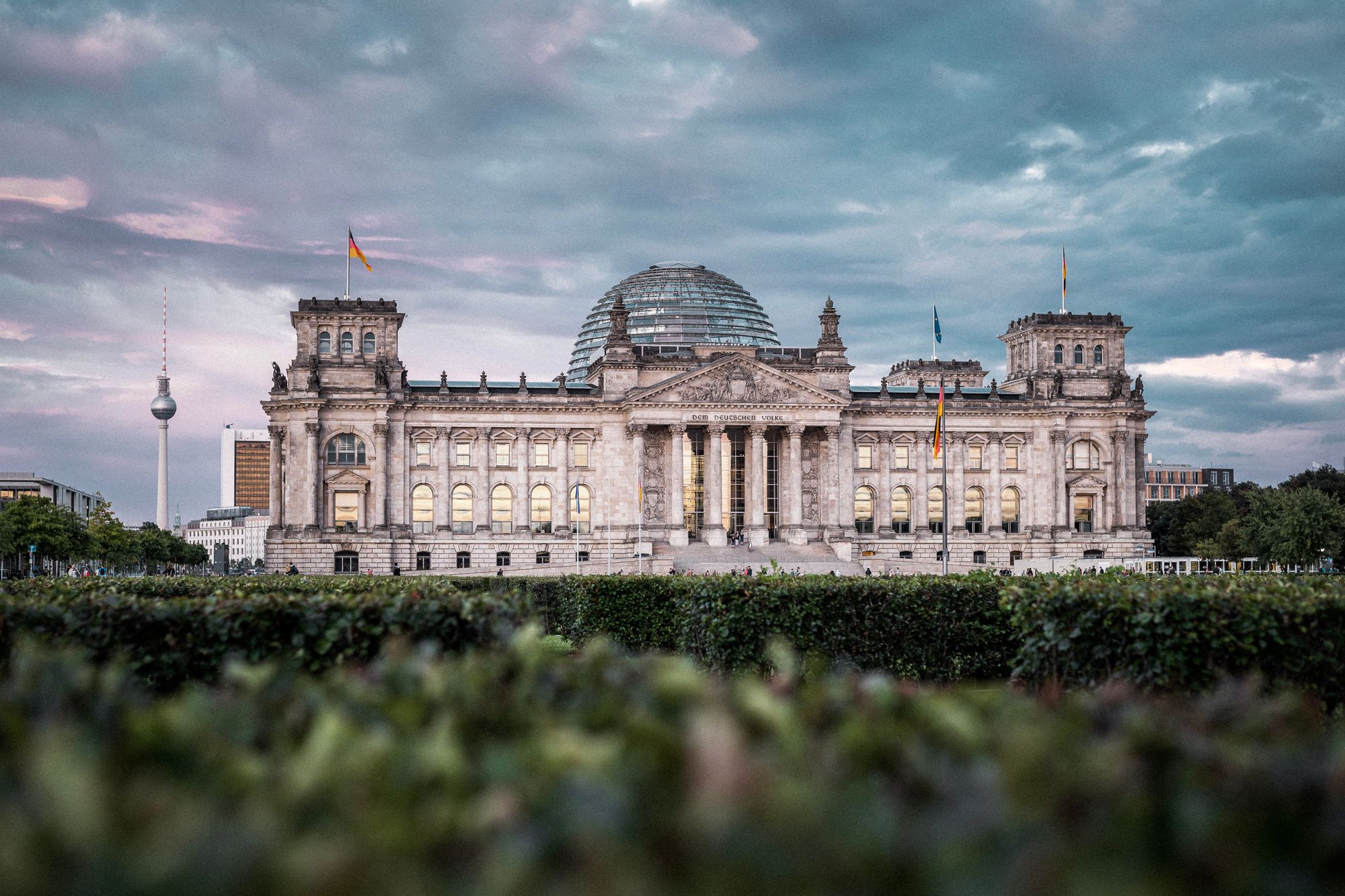Crucially, the countries of Northern and Western Europe seem to have reached a kind of political-economic-bureaucratic equilibrium, in which the largest parties on both sides of the political spectrum possess no mandate and no desire to alter the system in any ambitious manner. Market capitalism, regulated but by all definitions “free,” and a comprehensive welfare state have constituted a difficult model to beat.
This is what Harry wrote in his last Focus, “Bureaucratic Tyranny with Democratic Characteristics.” On the one hand, it’s true that there is good reason for general political consensus in countries like Germany discussed in the article. On the other hand, in a world increasingly in motion, domestic politics at rest may not be able to adapt and thrive. It is on that foreboding note that it’s worth taking a keen look at German politics, as national elections are set to take place this weekend.
The country features six main parties vying for seats in the Bundestag, or legislature, while two parties which currently govern together are the clear leaders: outgoing Chancellor Angela Merkel’s center-right Christian Democrats—sort of two parties in one—and the center-left Social Democrats. Both of these parties could capture 20-25% of the vote according to polls, and whichever one ends up leading will likely have to take in two other parties to form a legislative majority. This all sounds very complicated and like it could turn out any number of different arrangements and political visions, but it isn’t really so.
The Social Democrats are likely to come out ahead of the Christian Democrats, but either way the winner’s coalition partners will almost certainly be some combination of the other rival party, the pro-environment/center-left Greens, or the pseudo-libertarian Free Democrats. The other two parties in the mix, the left-wing Linke and the right-populist Alternative for Germany, are unlikely to receive an invitation. Add to that the fact that both leading parties have campaigned on a narrative of continuity with Ms. Merkel, and the appearance of an unpredictable election falls apart. Germany is likely to wake up on Monday feeling a little bit like it’s a “new boss, same as the old boss.”
This fairly uninspired campaign has dealt mostly with disagreements over how best to emulate Ms. Merkel’s leadership. Little discussion has been broached about forward-thinking foreign policy, something Germany must confront to deal with a rapidly changing world in which the simple maintenance of domestic contentment is insufficient to secure a positive future for citizens.
When it comes to the NordStream 2 pipeline from Russia to Germany—which critics suggest could entrap Europe into a reliance on Russian energy easily exploitable by Vladimir Putin—the two leading parties make no mention of it in their manifestos. On China, the major parties issue largely inconsequential platitudes that Germany needs to engage in discussion with their “competitor, partner, and systemic rival.” By and large, German politics seems to be sleepwalking into a changing future, seemingly ignorant of the increasing breakdown of global relations and the sorting of the world into multiple oppositional camps.
Perhaps some of this is intentional, born out of a belief that the world can and should be governed peacefully and cooperatively. It’s likely this attitude is at least partially a product of Germany’s peculiar psychology regarding its place in the world. It’s tough to evoke the notion of German leadership or activity in a polarizing world without also evoking the unwelcome memory of German ambition in the twentieth century.
This inclination toward lackadaisical foreign policy is also inextricably tied to the administrative and managerial tendencies of German governance discussed in Harry’s Focus. There, the main concern of politics is insular, oriented to the maintenance of the expansive welfare state rather than ambitious, forward-thinking policy.
The general lack of ambition in Germany is likely set to worsen, whatever coalition rises out of Sunday’s election. Besides the brief reunification coalition following the fall of the Berlin Wall, Germany has not yet dealt with a three-party coalition, a near certainty this time. Disagreement within the coalition between these diverse partners is likely to hobble efforts to do much more than keep the steam ship plugging along toward an unknown destination.
What’s more, coalition formation could take months. At the end of that slog, it seems the reward will be more of the same, while outside, the world demands adaptation. Germany’s welfare state and multiparty system has considerable virtues at home, but it seems ill-equipped to deal with today’s global challenges.
Subscribe to Spectacles



Comments
Join the conversation